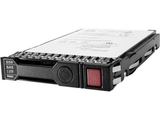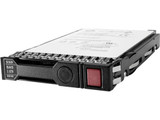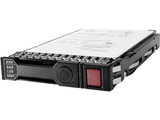Business Tips for Network Server Storage Devices Maintenance
Network servers and their storage devices can usually operate without any issues on their own and as a busy individual-- you would appreciate this. However, like most machines, network servers need some maintenance, and being proactive about it is the way to go.
Your corporate network server holds data and files which are key assets to running your business. You do not want to sit idly by or ignore it until something goes wrong.
If you lose any data to a network system error or if a cybercriminal successfully obtains sensitive information from your servers-- then it will affect your operations and it will affect your reputation.
That said, you want to monitor and maintain your server proactively to prevent possible disasters.
Top Maintenance Tips for Your Business Server
Regardless of whether you are running a big business or a startup company, you need to take good care of your network servers. The only difference here is that a bigger business may have an IT department to take care of the servers, while startups may need outside help-- or sometimes owners like to DIY. Either way, you need to do something to keep your servers running smoothly.
Here are some tips for avoiding costly outages and unnecessary stress while maintaining your network:
Update your operating system when upgrades are available.
Whenever your phone OS has new updates, you should install them as soon as you can. Given the familiarity with the concept of updating OS, you'd think that people understand the importance of updating the operating system for corporate servers. However, you'd be surprised to know that there are still businesses that use outdated OSD which leaves their servers and their companies vulnerable.
Using outdated OS leaves your network servers and storage devices vulnerable to cyberattacks. To prevent providing opportunities to cybercriminals, you should update your OS once any update is available.
Physically clean your servers.
Your server will eventually need you to clean its internal storage devices, but till then you need to clean it physically regularly. No matter how high quality your servers are and no matter how powerful their fans are-- dirt and dust will settle in their cases and cause a problem someday.
If you do not clean the dirt and dust that settles in the servers' cases, then it will increase the temperature within the case. Why is that a problem? For one, it can cause a fire or generally just end up with physical damage that will affect the corporate data and files in the system.
Make sure that you keep your servers physically clean. You can use compressed air for difficult areas to reach.
Check for error notifications or logs.
Make it a habit to check server system logs to look for any signs of hardware issues. You need to make sure that every single piece of hardware connected to the server is working and that there are no signs of network failures or overheating problems in the physical devices.
If you notice that your network system has not been running as smoothly as before, then checking for error notifications or logs will help you find out the problem even without any apparent issues.
Regardless if you are noticing changes in how your network runs or not, checking the logs for hardware errors should be done as a standard part of your server maintenance efforts.
Make sure that your backup server and storage devices are up and running.
Although you may already have developed the habit of checking your backup system weekly, are you sure that your backups are working as expected? As part of maintaining your network servers and storage devices, you need to make sure that your backup server is doing what it is meant to do.
You need to verify whether your backups are working properly. Even if you decide to outsource this task, you should still make an effort to understand how it works. For instance, it pays to know the schedule, backup location, and recovery times. That way, you know when something is not working as they should.
Consider cloud options.
You can never tell when there will be outages or maintenance issues-- so it is a good idea to have cloud options. There will come a time when there is a major server issue with either your server systems or your storage devices and you cannot do proper maintenance without affecting your operations. Some companies may even put off fixing the issue until it's too late. Do not be so careless just because your server is still thriving.
Cloud options will allow you to continue your operations during outages. You have the option to move at least a portion of your infrastructure to the cloud. Moving some of your stuff to the cloud will help you streamline your operations, hosting, data storage, etc. It can also help you increase your speed and flexibility.
To Wrap It Up...
Like most things, your business network server needs to maintain it to keep on working for a long time.
You need to update your operating system to avoid errors and ensure that your servers are equipped with the right software to combat cyberattacks. You also need to check your network servers from inside and out-- it means that you should clean them physically as well.
Although servers generally operate automatically on their own, you will never know if something needs to be repaired if you don't check it through your logs and notification. Lastly, it is always a good idea to have a backup plan-- even in the form of cloud storage.
Recent Posts
-
Unleashing Enterprise Power: Exploring the HPE 1.6TB TLC SAS SSD – The Write-Intensive Workhorse for ProLiant Dynasties
HPE 1.6TB 2.5-inch Small Form Factor TLC SAS-12Gbps SSD: A Deep Dive into Performance and Compatibil …Mar 27th 2025 -
ThunderHub: The HPE 1.6TB SSD That Electrifies ProLiant Performance
Exploring the HPE 1.6TB 2.5-inch SFF SAS-12Gbps Mixed Use SSD: A Robust Storage Solution for HPE Pro …Mar 26th 2025 -
Fast. Tough. Smart: Inside the HPE 1.6TB SAS SSD Revolutionizing ProLiant Servers
Exploring the HPE 1.6TB 2.5-inch SFF Power Loss Protection SAS-12Gbps Smart Carrier Mixed Use SSD fo …Mar 25th 2025




